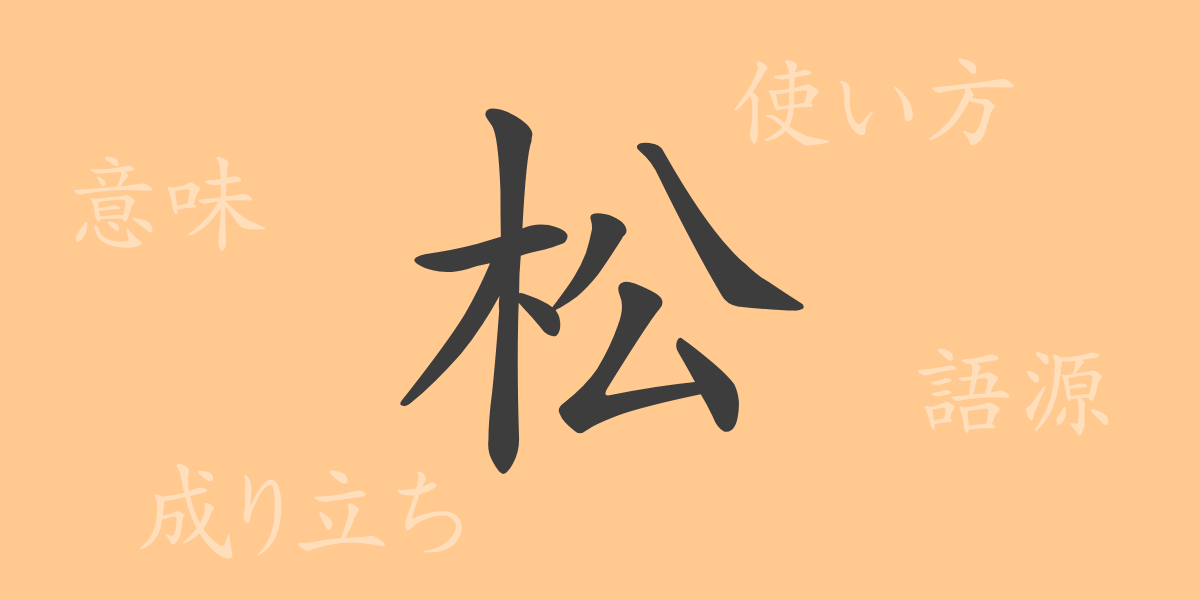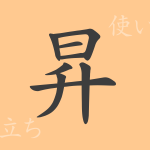The Japanese language, enriched by its script, has a unique beauty, with each kanji bearing its own history and profound meanings. In this article, we focus on the kanji ‘松’ (しょう), exploring its origins, meanings, applications, and related phrases and idioms, shedding light on this evergreen tree that remains a familiar presence in the lives of many Japanese people.
Origins of 松 (しょう)
The kanji ‘松’ originates from ancient Chinese oracle bone script. Its form was developed from a pictograph combining ‘木’ (tree) and ‘公’ (public), which connotes height and breadth, symbolizing the stature and spread of pine trees. Over time, the character evolved into its current form ‘松’, consistently evoking the image of towering pine trees.
Meaning and Usage of 松 (しょう)
‘松’ refers not only to pine trees but also symbolizes longevity and prosperity, making it a common feature in festive decorations and New Year’s ornaments. In phrases like ‘松竹梅’ (shochikubai), ‘松’ appears first, indicating its highest value. The expression ‘松の延齢’ (matsu no enrei) uses the pine’s longevity as a metaphor for wishing long life in humans.
Readings, Stroke Count, and Radical of 松 (しょう)
The kanji ‘松’ is fascinating in terms of its readings and structural elements:
- Readings: The on’yomi (Sino-Japanese reading) is ‘しょう’, and the kun’yomi (native Japanese reading) is ‘まつ’.
- Stroke Count: ‘松’ consists of 8 strokes.
- Radical: Its radical is ‘木’ (tree).
Phrases and Idioms Using 松 (しょう) and Their Meanings
There are numerous idioms and phrases involving ‘松’. For example, ‘松風’ (しょうふう) refers to the wind blowing through pines, symbolizing refreshing scenes and sounds. ‘松明’ (たいまつ), meaning torch, is made from pine wood, an essential light source in ancient times. The proverb ‘松の緑を惜しむ’ expresses the desire to preserve good things as long as possible.
Conclusion on 松 (しょう)
‘松’ deeply intertwines with Japanese nature and culture, beloved by many. From its unique etymology to its symbolism of longevity and prosperity, and its use in various expressions, this kanji breathes life into our language. Each sighting of ‘松’ is an opportunity to appreciate the rich history and culture underlying its presence.

























